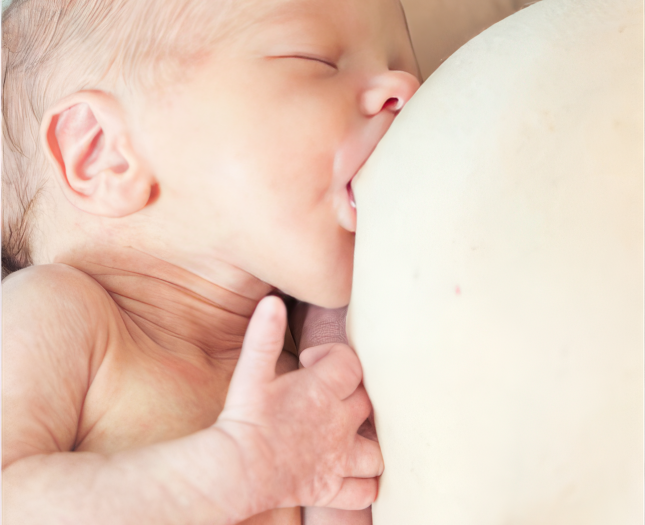When you go home

Know what to expect with feeding when you and your baby leave the hospital, and when to ask for help.
How to know if your baby is drinking enough
Watch for signs that your baby is drinking enough milk.
Behavior
Your baby should seem happy during and after feeding, and when being held.
Quality of feeds
Your breast should soften as you breastfeed. When the baby has a good feed, there is less milk left in the breast so your pumped volume will be lower.
You should also see and hear your baby swallowing.
Feeding pattern
Your baby should have seven to 10 feeds in 24 hours. They should spend up to 15 to 20 minutes per breast and drink from both breasts at most feeds. The time your baby spends at your breast will decrease as they become more efficient at breastfeeding.
Some babies may need to be fed by bottle after breastfeeding to help them grow.
Physical
Your baby’s body will fill out more each week. The stomach will start to look full or bloated, followed by the cheeks, neck and thighs.
Weight
Your baby will gain weight as they grow. Their growth trend is tracked on a growth chart and monitored by your healthcare provider.
Pumping
As your baby gets more milk from the breast, you will see your amount of pumped milk decrease.
You can stop pumping if your baby no longer needs supplemental milk and is growing well. This may be around 42 to 44 weeks after their due date or once your baby reaches eight pounds (8 lbs).
If you are pumping large amounts of milk, you may need to gradually decrease your pumping as fullness allows.
Vitamin D supplement
Babies drinking only breastmilk need a Vitamin D supplement of 800 units daily by mouth until they are one year old.
When to get help
You may need help from a health professional if:
- you have pain while breastfeeding
- Your baby has trouble latching or staying latched
- your breasts have red areas or lumps
- you have sore or cracked nipples
- you do not hear or see your baby swallow milk during feeding
- your baby has rapid, shallow sucking or seems to nibble for the whole feeding
- you are worried about how often or how well your baby is feeding